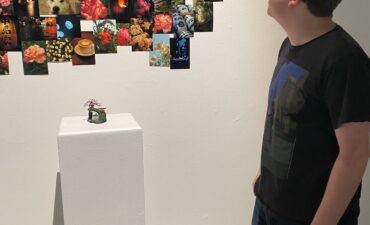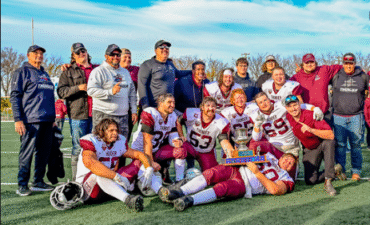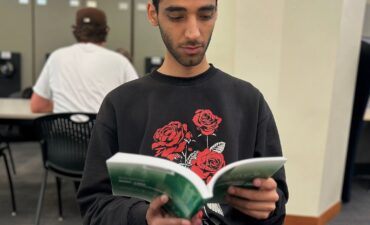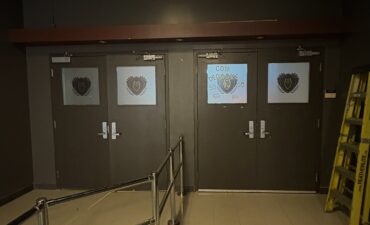By Campbell Stevenson
Within a community, where loss of trust and feelings of resentment have taken root, there are a select few that despite the challenges, decide to represent those in need and to take on the responsibility of defending those who are never heard. Meara Conway, newly elected MLA for Regina-Elphinstone centre, has been a fresh yet, familiar face who has grown to love and to defend the less represented in the Queen City. Born and raised in the Cathedral area of Regina, Meara grew up surrounded by strong family figures. Her grandparents, both considered pillars in our community, fought to establish Medicare for all Saskatchewan residents. She stated, “I grew up with a sense of pride in Saskatchewan’s social democratic legacy. I look around and see an urgent need to come together and tap into this ingenuity and imagination once again.” (Conway, NDP.ca). Following the October 26th Saskatchewan provincial election, she is now the voice of a very diverse community, one that has been under-represented for a long time. What follows is an interview with one of Regina’s freshest and brightest voices, one that this city has not seen in years.
C: Hello Meara, firstly, I would like to congratulate you on your recent election victory and to thank you for taking the time to speak with me. A little off topic but I’d love to ask, during my initial research I noticed that you have a Master’s Degree in Music from McGill University and that you are also quite the successful musician. Is there a certain type of music you enjoy the most, and do your strong ties to Saskatchewan, where folk and country music are predominant, have any influence on your own musical output?
M: “Growing up I took lessons, and I did a lot of classical music because that’s what I was introduced to in that formal kind of setting. I played cello and sang in symphonies. Later on, when I went to school for music, I discovered that I love bluegrass and folk music, but when I was a professional musician it was for the most part classical. For fun, my partner plays guitar and we enjoy playing country and folk songs, despite not being too good at it.”
C: On the topic of community, what drove you to advocate for and defend those who are less represented and to choose Elphinstone-centre as your primary focus?
M: So, I was born and raised in the Cathedral Area, part of Elphinstone centre, and when I moved back to Saskatchewan after I completed my studies, I began working as a Legal Aid lawyer. So, I’m basically a public defender, doing criminal law and representing people who have had their children apprehended. With the work I was doing with Legal Aid, I just ended up working with a lot of people from Regina Elphinstone centre and I saw the many challenges they were facing such as addiction, mental health issues , negative interactions with social services and the child apprehension system and through that work I became involved with my union at Legal Aid and eventually became president. Therefore, I realized many of the issues were political, and many of the impactful decisions were made at a higher level. In the end, Cathedral is my home and I felt a strong connection to the people of that community.”
C: When discussing the NDP and social programs, what key issues for Elphinstone-centre do you feel you want to bring forth to best represent your constituents?
M: There are no shortages of challenges for people in Regina Elphinstone; it’s a diverse community, a very mixed community, mainly Indigenous, immigrants and even white-poor but the emphasis is on the challenges of North Central. When I think about all the crises and how they intersect, whether it is poverty, addiction, or mental health and through what I’ve seen, I really want to work on a housing initiative. I’ve noticed a lot of social service housing units are sitting empty and are in relatively good shape. With a new and progressive city council, I’m hoping we can really push this Housing First agenda, because I think it can offer a lot of stability for people who are coming out of the criminal justice system, child apprehension system. I believe housing is the first step to bring stability.
C: Do you believe the NDP would fund safe injection sites such as advocated by Prairie Harm Reduction? And where do you stand on safe consumption sites such as this one?
M: I’m a huge believer in safe consumption sites, and I think we need to get beyond the point where the idea is even controversial. This is something that is obviously going to save lives, we rely on private volunteer groups to walk around picking up needles, these should be public jobs.
But yes, the NDP does support safe consumption sites, and we can’t treat addiction if people are dying. To me, it’s a no-brainer.
C: Do you believe that an equitable living wage is a predominant concern in Saskatchewan and, do you feel that increasing Saskatchewan’s minimum wage is a key issue?
M: Yes, Saskatchewan has the lowest minimum wage in Canada, and we’ve seen a consistent cutback of social programs or the safety social net, as we’ve seen an expansion of the low wage sectors (minimum wage work). I think we keep income support really low so that we have a supply of people that are desperate enough to go out and do low paid exploitive work. It’s difficult because the cost of living is going up but wages are remaining the same.
C: I understand you stand proudly alongside members of the Indigenous community and that you aided in representing those who constructed teepees in protest against injustice and racism at the “Our Stolen Children Camp”. How do you feel about the representation in government of the Indigenous communities of Saskatchewan, and specifically Regina?
M: I think it’s poor, our representation of having Indigenous voices in places of power is quite low. However, in this past election I was proud to see 13 Indigenous candidates, 3 of whom were elected I believe. It’s not the perfect ratio, but it’s a start. And as a Non-indigenous person working in Elphinstone-centre, I’ll do my very best to represent this community and do all I can to have their voices heard.
C: A recent article published by The National Observer touched on Indigenous Youth suicide in Canada and in Saskatchewan, and over the years this extremely unfortunate issue has worsened. How will you urge the Sask Party to adopt a meaningful strategy around suicide prevention for Indigenous Youth?
M: We’re doing what we can to apply pressure to the elected government so they know that they cannot just sit idly by and they know that it is going to be politically costly for them not to act. I don’t trust this government to do the right thing because it’s the right thing, I think this government might do the right thing because they’re worried about the political cost if they don’t- so our job is to make it as politically costly for them not to act as possible.
Meara is the perfect image of a strong community advocate who strives to advance her constituents’ needs and she believes, “we’re at our best when we’re helping one another.” After her studies in Montreal, she came back and noticed things were not the same as they were in her youth. She mentioned that Regina had become more conservative over time, and less sensitive to minority communities’ needs. In the face of the COVID-19 pandemic, she is equipped with knowledge that would truly benefit our communities and ideas that could help prevent the further spread of the virus.
C: Regarding the government response to COVID, I read on your post on Twitter, “Today’s half measures do not reflect the seriousness of the situation. They fall far, far short and this will mean preventable deaths.” (Conway, Twitter). What COVID measures would you encourage Premier Moe to adopt?
M: Fortunately, I don’t have to be that much of an original thinker, many others have brought this issue to light, but I would like to see: Mandatory masking for all communities-not this kind of arbitrary line in the sand, increasing our testing capacity- so that we can turn around testing quicker. I would say to allow more people to work from home, people are forced back into work even when the work can be done from home. But one of the most important things is a guaranteed shelter for anyone who has tested positive so that people can safely quarantine, and no one can introduce the disease into more vulnerable populations.
C: I would be remiss, having two teachers for parents, if I did not ask you about what measures you feel are necessary to ensure safe instruction to protect teachers, staff and students from rising COVID numbers?
M: Smaller classrooms! (she emphasizes with hands around her mouth as if she were shouting), It’s unfortunate because we saw initially the students wanted to take the online options but there was the rework and it went back to being….it just would’ve been the perfect opportunity.
Speaking with Meara has been a truly educational and eye-opening experience. She is a leader with charm and an endless supply of energy. She truly believes in people and community, and will work tirelessly for the constituents in her riding. With her strong ties and dedication to this fair city of ours, there couldn’t be a better fit for the Regina Elphinstone-centre and for our community as a whole. The city of Regina can look to this representative for leadership, in the years to come.














